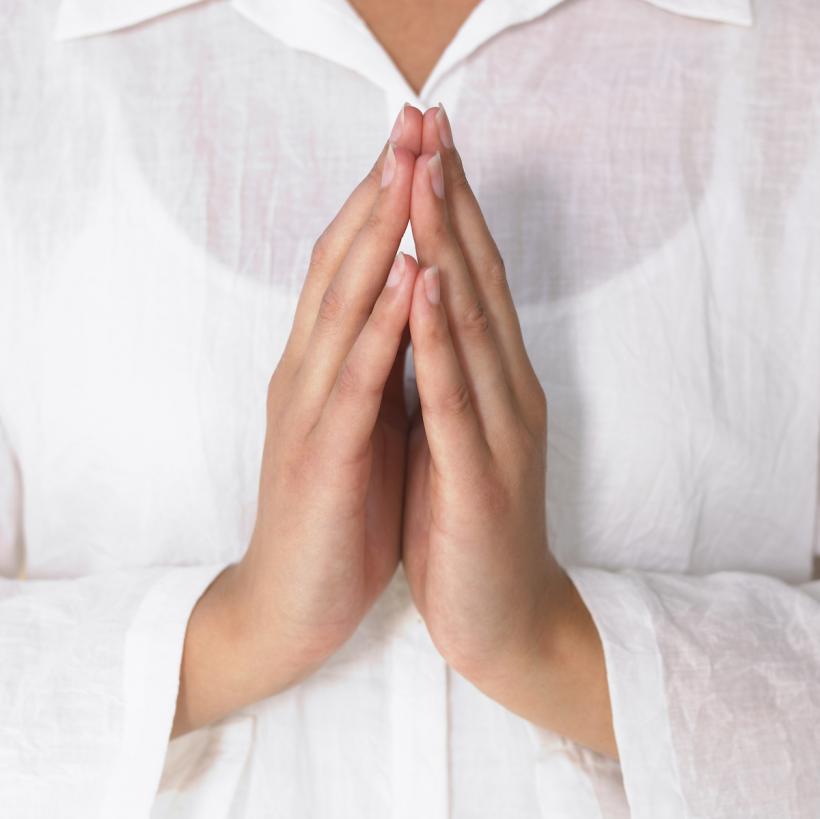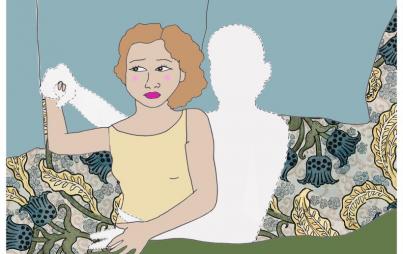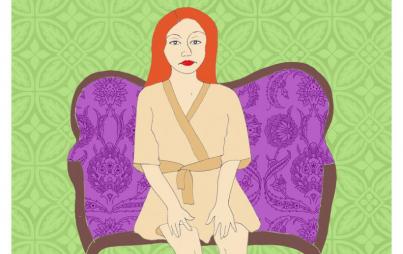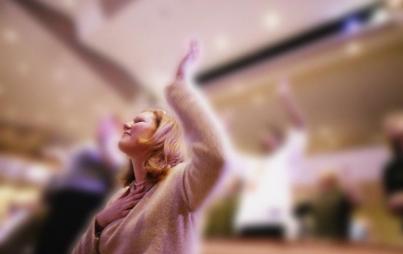
If someone doesn’t want to have sex, now or ever, that is her choice.
A couple of years ago, I joined the staff of an award-winning Catholic newspaper for the chance to cover immigration news. Though I wasn’t (and am not) Catholic, I greatly respected the Church’s social teachings on justice for immigrants and refugees. Since my mother is Salvadoran, I felt a strong sense of duty to report on immigration matters and learned more on the job than I ever imagined. What I wasn’t expecting was how much I would learn about the nuances of the Catholic faith. Even with a Catholic mother and a Catholic fiancé, there was so much I didn’t know. For one, I had no idea that consecrated virgins were a thing. And then I started working with one—Carmen Briceño, who wrote a column for the newspaper’s Spanish page (and who was recently profiled in Good Housekeeping thanks to my tip-off).
A consecrated virgin is not a nun.
She’s a woman who takes a vow to God that she will remain a virgin for her entire life. If I’m being totally honest, I initially thought the whole notion of a consecrated virgin was insane — misogynistic on the Church’s part and naïve on the woman’s. How could the Church still have such a vocation and what modern woman would ever willingly accept it?
Many orders of nuns, for instance, don’t require women to be virgins to join. After all, they take plenty of widows. They just have to commit to celibacy once they actually become nuns. But a consecrated virgin is a woman who’s never had sex and promises she never will. Isn’t that extreme? Yes, and that’s the point. A consecrated virgin’s vocation is meant to be a sacrifice, a way of honoring God and her body. It’s simply a sacrifice that took me time to understand, let alone respect.
I eventually began to accept that truly being a feminist means embracing the idea of “my body, my choice” in all its incarnations.
If I truly believe that women have the right to accessible birth control, the right to safe abortions, the right to consent to sex, and the right to make any decision regarding their own body, it also means I should believe women have the right to decide to never, ever have sex. There are two things that made it hard for me to come to that realization: virgin-shaming and purity culture.
In a hypersexualized culture, adult virgins are viewed as oddities. Secular people tend to wonder why they are waiting and what’s wrong with them, if they are somehow “broken” or “brainwashed.” Religious people likely assume that someone is waiting until marriage, but even then there is the expectation that adult virgins will eventually have sex. They will get married and their sex life will finally begin. The problem in either case is that it assumes a person wants sex and will inevitably have it.
Though consecrated virgins are an extension of purity culture, the reason I came to accept the concept of this vocation is that it’s about choice. Consecrated virgins choose this life. They’re not forced into it.
Sexual desire and activity are natural impulses, sure, but by assuming sex is for everybody, we make virgins, celibates, and asexuals feel bad about themselves. Think about sexual assault victims. Is the expectation that they heal their wounds and continue having sex after their assault really fair? No, and yet people maintain that belief. When a survivor heals, she will have sex again. But what if she does in fact find peace and yet never wants to have sex again? Does that mean she’s “broken”? No. Because a survivor could easily have sex again without ever going through the mental, emotional, and spiritual healing process that she needs. People in abusive relationships do it all the time.
If someone doesn’t want to have sex, now or ever, that is her choice. The problem is, it can be hard to make that choice when women are hypersexualized and sexy words and images abound. In progressive circles, having sex (and lots of it) is often celebrated, almost regardless of the reasons why someone’s getting it on in the first place. In practice, sex positivity doesn’t always take the individual into consideration.
At the other end of the spectrum lies the problem of purity culture, which essentially equates virginity to a woman’s worth. (Never mind that virginity in and of itself is a social construct, not a medical state.) A culture of hypersexuality shames virgins for being “prudes,” while purity culture shames sexually active women for being “sluts.”
In purity culture, women are pressured to refrain from sexual activity, which is certainly anti-choice.
That mentality goes against one of the central ideas in feminism: In an equal world, women should have a variety of choices in life, the same way men do. But in purity culture, women lack the very basic choice to have sex without serious social penalty. Look at purity balls, the formal dances in which teen girls promise their fathers that they’ll remain virgins until marriage. They even sign an agreement and put on a ring to represent their promise.
Again, if this were truly a choice, not a socially mandated activity, that would be one thing — though the father’s required presence would still be weird. So-called "purity" shouldn't be the only option for women; it should be among the various choices for how to pursue sexual expression. But it shouldn’t be framed in terms of purity, because that implies that women who do have sex are somehow tainted.
Though consecrated virgins are an extension of purity culture, the reason I came to accept the concept of this vocation is that it’s about choice. Consecrated virgins choose this life. They’re not forced into it. The Church has women interested in becoming consecrated virgins go through a discernment period before they make their vow and “marry Jesus.”
It’s problematic that the Catholic Church perceives marrying the Church or marrying a spouse as the only valid options for women; that view isn’t supportive of people who never marry or take a vocation. But at least that lack of support for unmarried people is equally unfair for men and women. Because Catholic men face the same expectation: You either take a wife or take on a vocation. While I see that as one of several major flaws within the religion (here’s looking at you, pro-life and “traditional” marriage movements), at least the injustice is equal opportunity.








